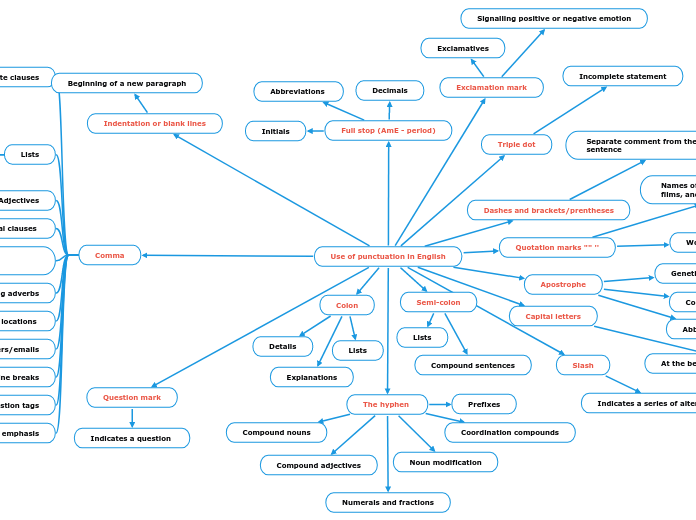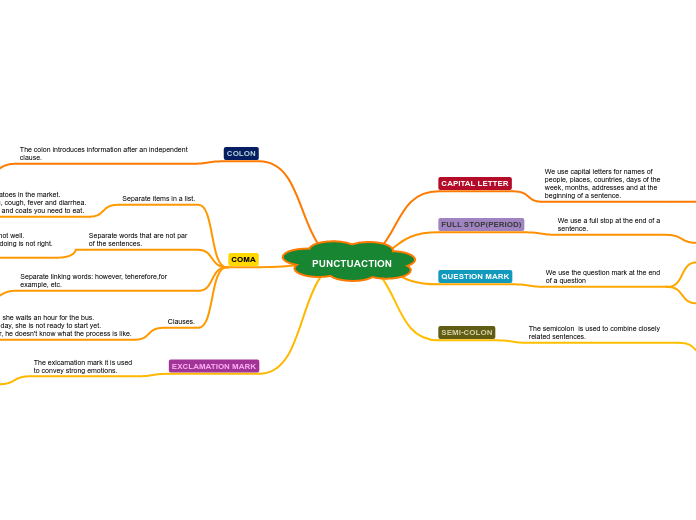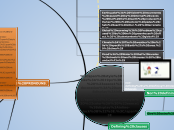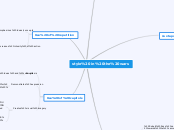Use of punctuation in English
Effective punctuation in English writing involves various marks to clarify meaning, indicate pauses, and separate ideas. The full stop, or period, signals the end of a statement, while the comma is used for separation within sentences to enhance readability.
開啟
Use of punctuation in English Indentation or blank lines Beginning of a new paragraph Triple dot Incomplete statement Slash Indicates a series of alternatives Question mark Indicates a question Exclamation mark Signalling positive or negative emotion Exclamatives The hyphen Prefixes Numerals and fractions Coordination compounds Noun modification Compound adjectives Compound nouns Capital letters At the beginning of sentences and quations Apostrophe Abbreviations Contracted forms Genetive forms Quotation marks "" '' Words in a foreign language Names of books, magazines, newspapers, films, and paintings Dashes and brackets/prentheses Separate comment from the rest of the sentence Full stop (AmE - period) Decimals Abbreviations Initials Semi-colon Compound sentences Colon Details Explanations Comma Intonation and emphasis Question tags Line breaks Forms of address in letters/emails Geographical locations Linking adverbs Non-restrictive relative clauses and appositions Adverbial clauses Adjectives Lists Or And Coordinate clauses Nor Yes But









